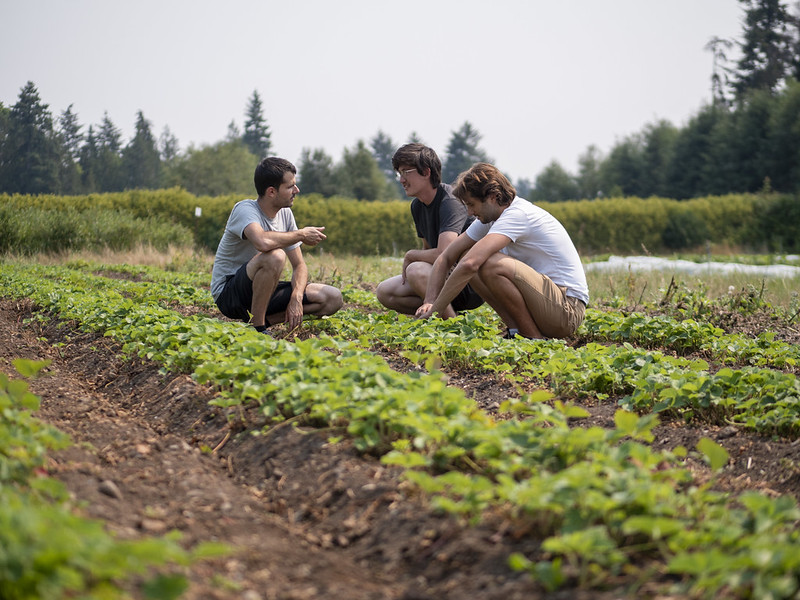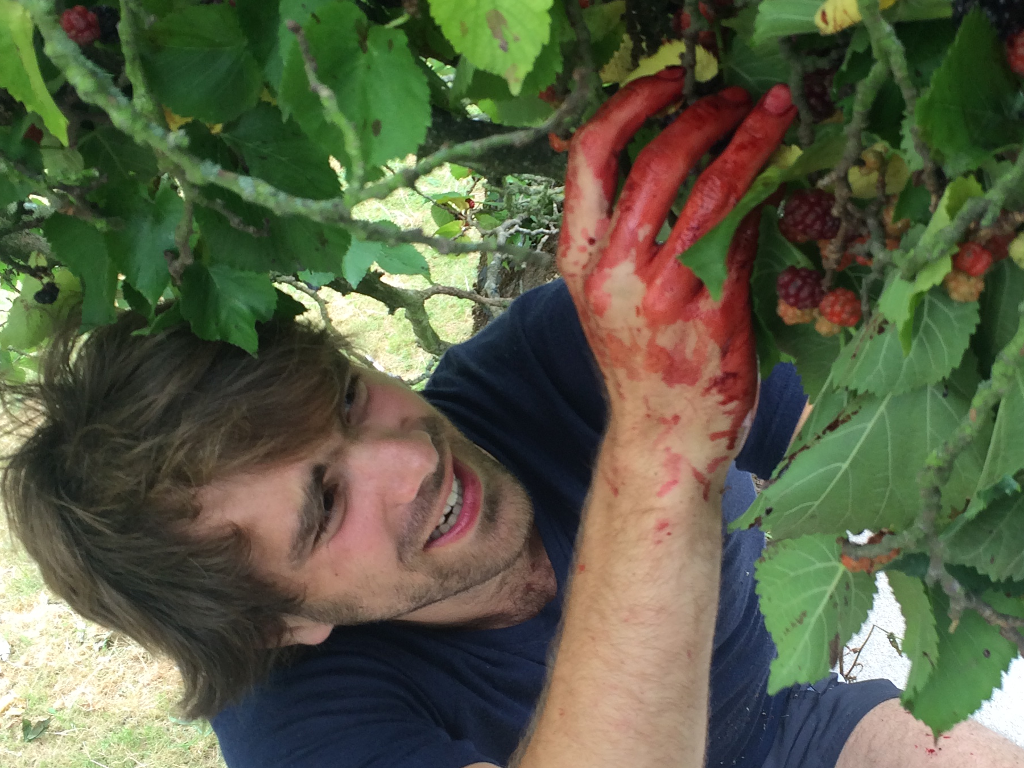Lab members bolded
C McGregor, T Kelly, J Carrillo, C Kremen (2025). Pollinators utilize both traditional and forb-supplemented set-aside fields in agriculture. Agriculture, Ecosystems & Environment.
MV Rossi-Stacconi, PK Abram, G Anfora, E Beers, A Biondi, N Borowiec, J Carrillo […], G Wang, et al. (2025). Adventively established Leptopilia japonica: A new opportunity for augmentative biocontrol of Drosophila suzukii. Journal of Pest Science.
M Tsuruda, M Clausen, D Bondar, C Kremen, J Carrillo (2024). Short-term grasslands in agriculture support both natural enemy and phytophagous arthropod populations. Journal of Applied Entomology.
LG Neven, WB Walker III, CM Gowton, J Carrillo (2024). Using eDNA to play whack-a-mole with invasive species in green yard waste. Journal of Economic Entomology.
RD Sargent, J Carrillo, C Kremen (2023). Common pesticides disrupt critical ecological interactions. Trends in Ecology & Evolution.
M Tsuruda, P Girod, M Clausen, J Carrillo (2023). Aromatic border plants in early season berries do not increase parasitism of spotted wing drosophila, Drosophila suzukii. Pest Management Science.
Q Geissmann, PK Abram, D Wu, CH Haney, J Carrillo (2022). Sticky Pi is a high-frequency smart trap that enables the study of insect circadian activity under natural conditions.

Photo: Duncan McHugh

PK Abram, MT Franklin, T Hueppelsheuser, J Carrillo, E Grove, P Eraso, S Archeampong, L Keery, P Girod, M Tsuruda, M Clausen, ML Buffington, CE Moffat (2022). Adventive larval parasitoids reconstruct their close association with spotted-wing drosophila in the invaded North American range. Environmental Entomology.
AE Norgaard, DL Lewis, KA Borden, M Krzic, J Carrillo, SM Smukler (2022). Trade-offs in organic nutrient management strategies across mixed vegetable farms in Southwest British Columbia. Frontiers in Sustainable Food Systems.
CM Gowton, C Cabra-Arias, J Carrillo (2021). Intercropping with peppermint increases ground dwelling insect and pollinator abundance and decreases Drosophila suzukii in fruit. Frontiers in Sustainable Food Systems.
PK Abram, AE McPherson, R Kula, T Hueppelsheuser, J Thiessen, SJ Perlman, CI Curtis, JL Fraser, J Tam, J Carrillo, M Gates, S Scheffer, M Lewis, M Buffington (2020). New records of Leptopilina, Ganaspis, and Asobara species associated with Drosophila suzukii in North America, including detections of L. japonica and G. brasiliensis. J of Hymenoptera Research.
CM Gowton, M Reut, J Carrillo (2020). Peppermint essential oil inhibits Drosophila suzukii emergence but reduces Pachycrepoideus vindemmiae parasitism rates. Scientific Reports.
J Carrillo, LL Ingwell, X Li, I Kaplan (2019). Domesticated tomatoes are more vulnerable to negative plant-soil feedbacks than their wild relatives. J of Ecology.
L Xiao, MR Herve, J Carrillo, J Ding, W Huang (2019). Latitudinal trends in growth, reproduction and defense of an invasive plant. Biological invasions.
L Xiao, J Carrillo, E Siemann, J Ding (2019). Herbivore-specific induction of indirect and direct defensive responses in leaves and roots. AoB Plants.
CH Haney, CL Wiesmann, LR Shapiro, RA Melnyk, LR O’Sullivan, S Khorasani, L Xiao, J Han, J Bush, J Carrillo, NE Pierce, FM Ausubel (2018). Rhizosphere-associated Pseudomonas induce systemic resistance to herbivores at the cost of susceptibility to bacterial pathogens. Molecular Ecology.
X Li, M Garvey, I Kaplan, B Li, J Carrillo (2018). Domestication of tomato has reduced the attraction of herbivore natural enemies to pest-damaged plants. Agricultural and Forest Entomology.
H Wu, J Carrillo, J Ding (2017). Species diversity and environmental determinants of aquatic and terrestrial communities invaded by Alternanthera philoxeroides. Science of the Total Environment.
H Wu, J Carrillo, J Ding (2016). Invasion by alligator weed, Alternanthera philoxeroides, is associated with decreases species diversity across the latitudinal gradient in China. J of Plant Ecology.
J Carrillo, E Siemann (2016). A native plant competitor mediates the impact of above-and below-ground damage on an invasive tree. Ecological Applications.
See more on Google Scholar.